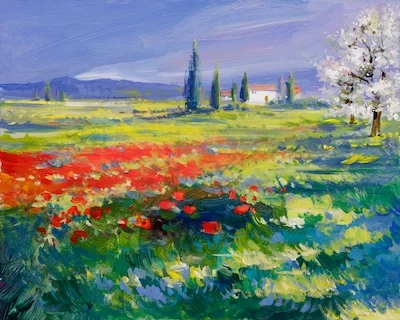Carmen Papalia and Co-Conspirators
Artists with disabilities offer education about cultural ableism.

“Provisional Structures: Carmen Papalia with Co-Conspirators,” 2022
installation view at Vancouver Art Gallery (photo by Ian Lefebvre, VAG)
Seven years ago, Carmen Papalia, a non-sighted artist and accessibility advocate, gave the Vancouver Art Gallery an unsolicited audit of accessibility, addressing numerous discrepancies in the gallery’s accessibility program. In response, the gallery began an ongoing relationship with Papalia, who has consulted on plans for increased accessibility.
Through this partnership, they recently launched Provisional Structures: Carmen Papalia with Co-Conspirators, on view until April 16. Papalia, a social practice artist in Vancouver, aims to create intentional models of access that are flexible and spontaneous, while emphasizing collective community support through collaborations with several artists and advocates.

“Provisional Structures: Carmen Papalia with Co-Conspirators,” 2022
installation view at Vancouver Art Gallery (photo by Ian Lefebvre, VAG)
Provisional Structures is an interactive site designed to enhance comfort. Sandbag seating is arranged in all rooms, both utilitarian and as part of the show. Upon entering the second-floor gallery, visitors encounter a monitor looping an audio-only introduction to the installation, welcoming them into a “gentle, disability-informed space.” The entranceway offers a wheelchair, a cane, noise-cancelling headphones, and a navigational walking stick to aid movement through the space.
Much work prioritizes learning, where the gallery becomes a classroom with a range of teachable information addressing cultural ableism. There are selected Zoom recordings from a conference entitled As We Are: Disability Justice and Community Care, convened in 2020 by Portland-based educator and artist Rebel Fayola Rose, whose work aims to boost inclusivity for people of colour, as well as queer, trans and gender non-conforming people – those who can be excluded from the frequently white-led disability rights movement.

“Provisional Structures: Carmen Papalia with Co-Conspirators,” 2022
installation view at Vancouver Art Gallery (photo by Ian Lefebvre, VAG)
Question Access: Standard Access Against Access Art, made in 2020 by the Curiosity Paradox, an artist duo also from Portland, is a series of risograph-printed cards and a wall-mounted didactic that compare the limits of “standard access” and “Access Art.” Standard access is defined as the largely out-of-date compliance-based model maintained by the Americans with Disabilities Act. Existing models of access require organizations to simply check off a set of accommodations on lists that tend to be uninformed by Disabled people. Meanwhile, Access Art is a term used by the artists to emphasize agency. As an intervention, it seeks to rethink how organizations meet needs requirements, asserting the Disabled community as creative, dynamic and collaborative. The cards and wall text make this comparison blatant.

“Provisional Structures: Carmen Papalia with Co-Conspirators,” 2022
installation view at Vancouver Art Gallery (photo by Ian Lefebvre, VAG)
The classroom area centres around a large work by Papalia and Heather Kai Smith, a Nanaimo-based visual artist and animator. For this untitled work, a parachute suspended from the ceiling is emblazoned with the phrase “Open Access is a Temporary, Collectively Held Space.” Underneath, sandbag seating is grouped in a circle and topped with a heating pad. During the media tour, which previewed the unfinished exhibition, Papalia said he hoped to make this a comfortable space for contemplation and learning. When I returned to view it, this idea still seemed incomplete – the sandbags are hard and uninviting, while the heating pad was turned off.

“Provisional Structures: Carmen Papalia with Co-Conspirators,” 2022
installation view at Vancouver Art Gallery (photo by Ian Lefebvre, VAG)
The final room holds Provisional Structure, a large tented wooden dome that focuses audio into its centre. In the dome’s peak, six black balloons float in correspondence with 840 black balloons that hang within the gallery’s exterior-facing windows on Georgia Street. This reflects the 846 people in the region expected to die from illicit drugs during the four-month exhibition. Visually, the structure – and the balloons that face the street – are the most arresting of the works, leaving space for viewers to think. But inside the tent, another Zoom recording awaits, this one from the Disability Filibuster, an online protest against Bill C-7, which in 2021 expanded medical assistance in dying provisions in the Criminal Code to include people with disability diagnoses who are not at end of life.
I found myself overwhelmed by the amount of information and the didacticism in this exhibition. Yet, I recognize that as an abled person, I need to confront my privilege and the ways my criticism can reflect it. Ultimately, I’m heartened by the vulnerability it takes to call in an art audience, and appreciate that, here, it is artists who are driving practical changes in disability policy. ■
Provisional Structures: Carmen Papalia with Co-Conspirators at the Vancouver Art Gallery from Dec. 3, 2022, to April 16, 2023.
PS: Worried you missed something? See previous Galleries West stories here or sign up for our free biweekly newsletter.

Vancouver Art Gallery
750 Hornby St, Vancouver, British Columbia V6Z 2H7
please enable javascript to view
Wed to Mon 10 am - 5 pm; Thurs and Fri until 8 pm; closed Tues (Summer Hours: Daily 10 am - 5 pm, except Tues noon - 5 pm and Thurs, Fri till 8 pm)
